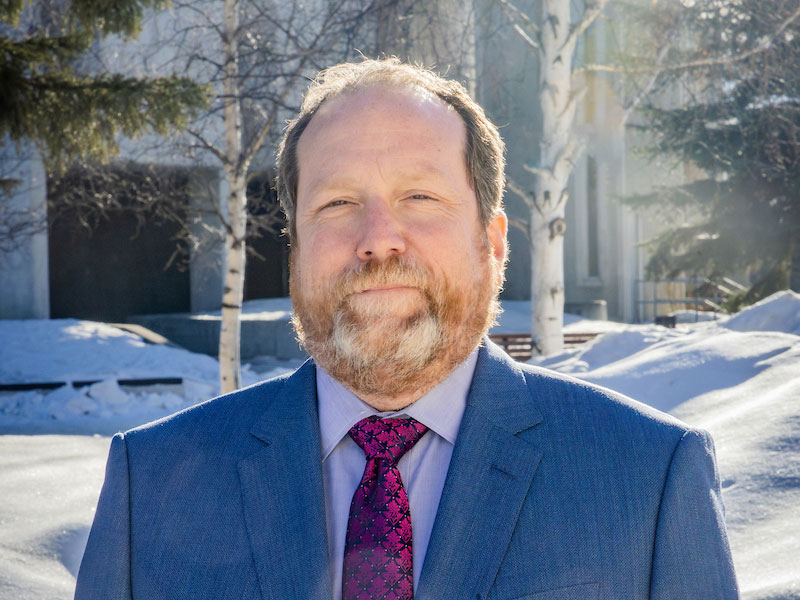Contact us

Douglas Cost, Ph.D.
- Dean
- UAF School of Education
- dscost@alaska.edu
- 907-474-7341
- 713A Gruening Building
Dean Cost has worked in the UAF SOE Secondary program since 2017, and chaired it for the last six years. He worked in public schools as ELA teacher, drama program director, baseball coach and literacy and leadership coach.
Dr. Cost received a B.A. in English and poetry from the University of Southern California (1995), an M.A. in education policy and leadership studies from California State University Northridge (2005), and an M.F.A. (2010) in poetry and a Ph.D. in cross-cultural education, community resilience, and futures studies through the UAF interdisciplinary Ph.D. program (2017).
In Fairbanks
uaf-soe-school@alaska.edu
907-474-7341
7th Floor Gruening Building
1747 S. Chandalar Dr., Fairbanks, AK 99775
In Anchorage
Nikki Marshall
907-786-1424
215 Beatrice G. McDonald Hall (BMH)
2400 W. Campus Dr., Anchorage, AK 99508
Loading directory...
